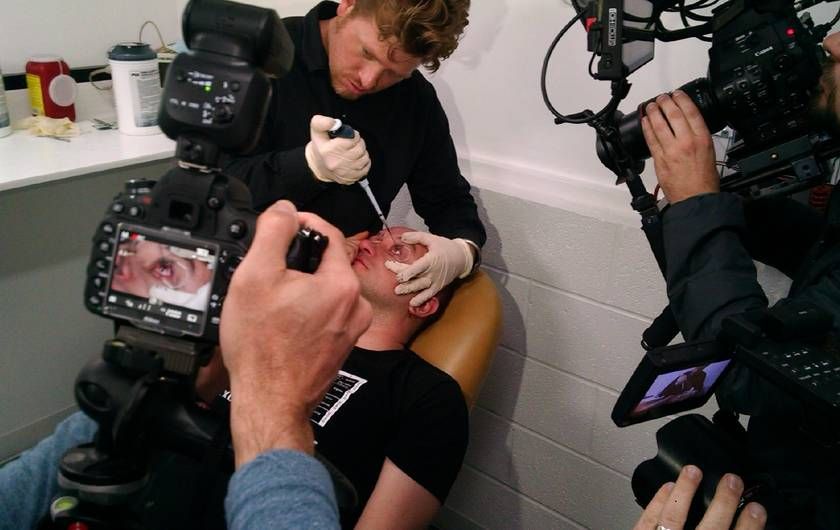
A group of U.S. "citizen scientists" claim to have successfully tested night-vision-inducing eye drops.
Using a solution that has previously been prescribed for night blindness - where a sufferer struggles to see in low light - the group, called Science for the Masses (SftM), tested the drops out on their principle testing consultant, Gabriel Licina.
The team held Licina's eyes open while a small amount of solution was dropped onto the eyeballs using a pipette, and then given time to absorb. Licina then put on black contact lenses to avoid over-exposure to light.
He was then led out to a field, and tested out his eyesight against a control group that had not been given the night-vision drops. They were asked to identify shapes hanging from trees, and then identify motionless people at distances of up to 50 metres.
Recording their results on their website, SftM said Licina's night-vision led him to a 100% success rate in recognising the targets, while the control group only scored 33%.
In a review paper, SftM say the substance - Chlorin e6 - had before been used as a therapy agent in cancer treatment, as the light amplification properties are used to destroy cancerous cells by harnessing energy from a low power light source.
They also warn in the paper that the application of Chlorin e6 could cause damage to the cellular structure of the eye.
When asked about the risks to his own eyesight, Licina says: "It's more difficult to sue yourself. We have done the research, we've double and triple checked all of our sources and the journal papers."
"We are serious about what we do, we are serious about science, so that means we read a lot of journals papers. We researched the fuck out of this."
Licina explains what happens "It's subtle. It's not like 'oh my gosh I have super vision!'," he says.
"It's more like dark became dim, everything was a little brighter. Not a crazy noticeable light, burning and doom, but more a subtle, 'oh I can see a thing!'"
On their website, SftM say: Our mission is to aid in the development of "citizen science"; we want to see the tools and resources necessary to perform scientific research made available to anyone that wants them.
Licina says SftM have more projects in the pipeline including a "cheap accessible tool" for carrying out genetic modification that will allow the general public to take part in scientific enquiry without the need for access to expensive laboratory equipment.
Uncommon Knowledge
Newsweek is committed to challenging conventional wisdom and finding connections in the search for common ground.
Newsweek is committed to challenging conventional wisdom and finding connections in the search for common ground.
About the writer
Luke is a reporter at Newsweek Europe based in London covering politics, business, science and technology. @HurstWords
To read how Newsweek uses AI as a newsroom tool, Click here.








